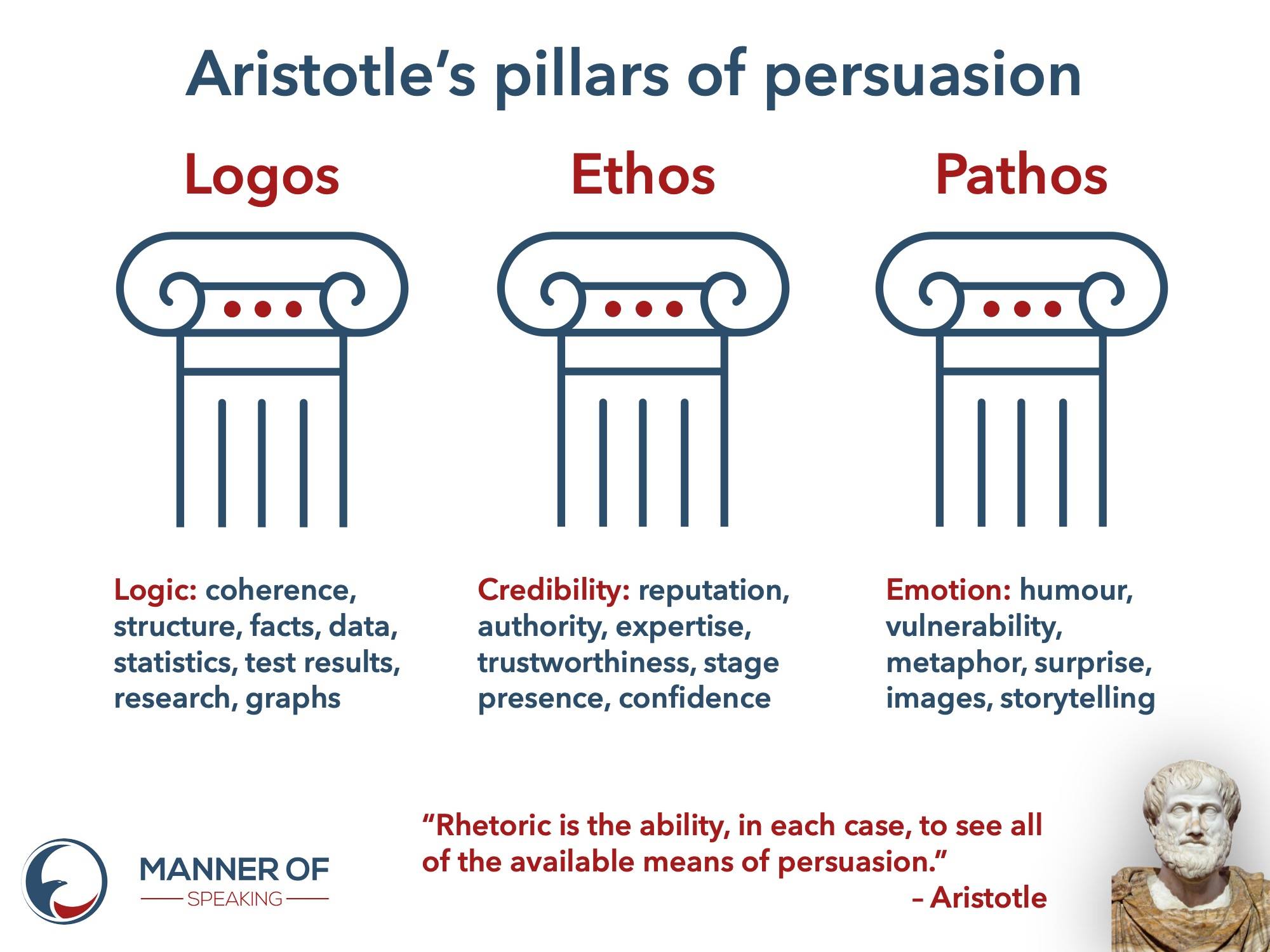Kairos: The Foundation of Rhetoric

What time is it? The ancient Greeks had two words for “time”. The first was “chronos” (χρόνος), which referred to chronological time. Words like “chronological” and “chronology” come from chronos. The second was “kairos” (καιρός), which means the right moment or opportunity. It is this second meaning which is of supreme importance when it comes […]
Aristotle’s pillars of persuasion

More than 2,300 years ago, Aristotle wrote Rhetoric, considered by many to be the Bible of persuasive speaking. For Aristotle, rhetoric was “the ability, in each case, to see all of the available means of persuasion”. There are many means by which you can persuade your audience of something, but they all fall into one […]
Quotes for Public Speakers (No. 321) – Plato

“Rhetoric is the art of ruling the minds of men.” Plato Photo courtesy of Marie-Lan Nguyen / Wikimedia Commons
In the footsteps of Aristotle

In May 2018, I visited Athen, Greece to speak at a conference. While there, I had the opportunity to visit the Acropolis and see the Parthenon. With the Parthenon as an amazing backdrop, I made a short video on Aristotle’s three pillars of rhetoric, which you can see here. Lyceum After the Parthenon, I visited another […]
Rhetorical Devices: Symploce

This post is part of a series on rhetorical devices. For other posts in the series, please click this link. For a comprehensive, step-by-step overview of how to write a speech outline, please see this post. Device: Symploce (pronounced sim-plo-see or sim-plo-kee) Origin: From the Greek συμπλοκήν (simplokeen), meaning “interweaving”. In plain English: Repetition of a […]
Quotes for Public Speakers (No. 245) – Aristotle

“An emotional speaker always makes his audience feel with him, even when there is nothing in his arguments; which is why many speakers try to overwhelm their audience by mere noise.” Aristotle
Rhetoric for Persuasive Speaking

Dukascopy Bank is a Swiss online bank that provides trading services, particularly in the foreign exchange marketplace. One of its subsidiaries, Dukascopy TV, broadcasts shows about business matters on the Internet. I have been interviewed there a few times, for example here and here. persuasive speaking Recently, the team at Dukascopy invited me for an interview […]
Rhetorical Devices: Anastrophe

This post is part of a series on rhetorical devices. For other posts in the series, please click this link. For a comprehensive, step-by-step overview of how to write a speech outline, please see this post. Device: Anastrophe Origin: From the Greek ἀναστροφή (anastrophē), meaning “a turning back or about”. In plain English: Changing the syntax […]
Rhetorical Devices: Syllepsis

This post is part of a series on rhetorical devices. For other posts in the series, please click this link. For a comprehensive, step-by-step overview of how to write a speech outline, please see this post. Device: Syllepsis Origin: From the Greek σύλληψις (sillipsis) meaning to take together. In plain English: When one word—often a verb—is used in […]
Tagged Alanis MorissetteDorothy ParkerMargaret Atwoodpublic speakingrhetoricsyllepsisThe Rolling Stones














